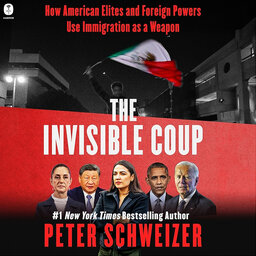Episode 745: The Disappearing American Farmer
Newt talks with Brian Reisinger, a columnist, consultant, and author of the book, “Land Rich, Cash Poor: My Family’s Hope and the Untold History of the Disappearing American Farmer.” Reisinger shares his journey from growing up on a family farm in Wisconsin, working in Washington D.C., and then returning to his roots. He discusses the challenges and opportunities in modern farming, the impact of technology, and the role of government policies and subsidies. Reisinger also highlights the importance of connecting farmers to new market opportunities and building out rural regional economies.
In 1 playlist(s)
Newt's World
Join former House Speaker, professor, historian, and futurist Newt Gingrich as he shares his lifetim…Social links
Follow podcast
Recent clips

Episode 948: ‘Moneyball’ for Politics
30:34

Episode 947: Will AI Take My Job
28:22

Episode 946: Peter Schweizer on “The Invisible Coup”
34:50
 Newt's World
Newt's World